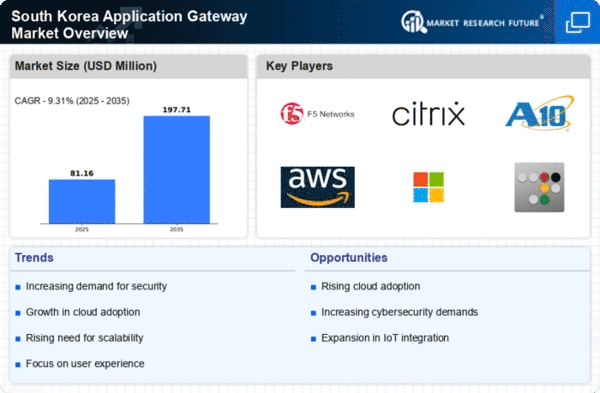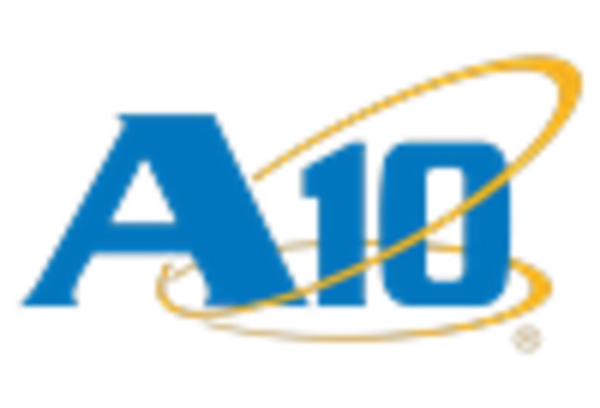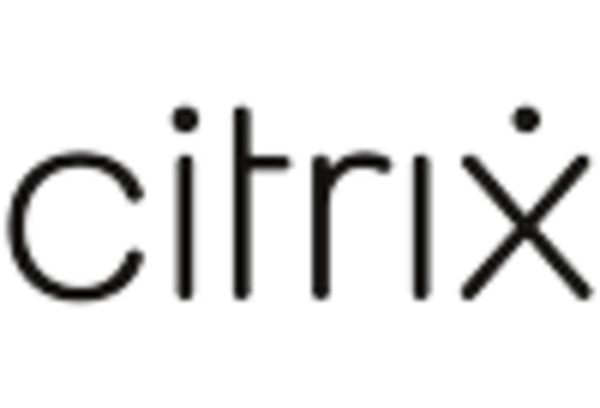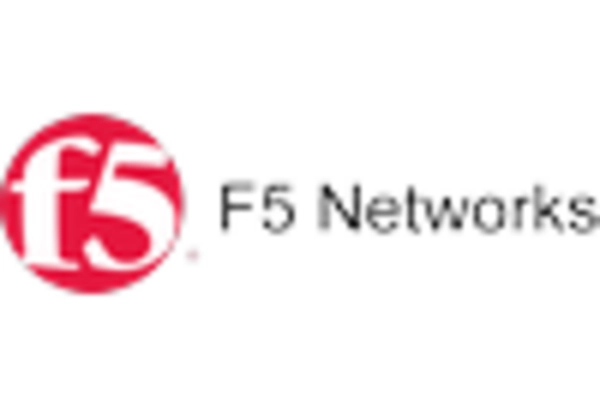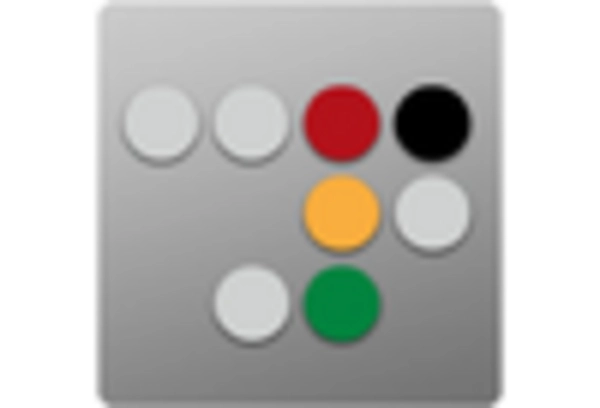Focus on Enhanced User Experience
In the competitive landscape of South Korea, businesses are increasingly prioritizing enhanced user experience, which directly impacts the application gateway market. Companies recognize that a seamless and responsive application experience is crucial for customer retention and satisfaction. As a result, investments in application gateways that optimize performance and reduce latency are on the rise. The application gateway market is expected to witness a growth rate of around 12% in 2025, driven by the demand for solutions that can deliver high-quality user experiences. This focus on user-centric design indicates a shift in how businesses approach application delivery, further solidifying the role of application gateways in achieving these objectives.
Adoption of Hybrid Cloud Solutions
The increasing adoption of hybrid cloud solutions in South Korea is a significant driver for the application gateway market. Organizations are seeking flexible and scalable infrastructure to support their diverse workloads. Application gateways facilitate the integration of on-premises and cloud-based applications, ensuring secure and efficient data flow. In 2025, it is projected that hybrid cloud adoption will reach 40% among enterprises, highlighting the critical role of application gateways in this transition. The application gateway market is likely to benefit from this trend, as businesses require solutions that can seamlessly connect their hybrid environments while maintaining security and performance.
Emergence of IoT and Smart Devices
The proliferation of Internet of Things (IoT) devices in South Korea is reshaping the application gateway market. As more smart devices connect to networks, the need for effective traffic management and security becomes paramount. The application gateway market is likely to see increased adoption of solutions that can handle the complexities of IoT environments. In 2025, it is estimated that the number of connected devices will exceed 30 million in South Korea, necessitating advanced application gateways to ensure seamless communication and data integrity. This trend suggests that the application gateway market will continue to evolve, adapting to the unique challenges posed by the growing IoT landscape.
Growth of E-commerce and Online Services
The surge in e-commerce and online services in South Korea significantly influences the application gateway market. With a reported increase of 20% in online retail sales in 2025, businesses are compelled to enhance their digital presence. Application gateways play a pivotal role in ensuring secure and efficient transactions, thereby fostering consumer trust. As more companies transition to online platforms, the demand for robust application gateways rises, enabling them to manage high volumes of traffic and protect sensitive customer data. This trend indicates a strong correlation between the growth of online services and the application gateway market, as businesses seek reliable solutions to support their expanding digital operations.
Increased Demand for Digital Transformation
The application gateway market experiences heightened demand as organizations in South Korea pursue digital transformation initiatives. This shift is driven by the need for enhanced operational efficiency and improved customer experiences. As businesses increasingly rely on digital platforms, the application gateway market becomes essential for managing and securing application traffic. In 2025, the market is projected to grow by approximately 15%, reflecting the urgency for companies to adopt advanced technologies. The integration of application gateways facilitates seamless connectivity and data flow, which is crucial for businesses aiming to remain competitive in a rapidly evolving digital landscape. Consequently, the application gateway market is positioned to benefit significantly from this trend, as organizations prioritize investments in digital infrastructure.


